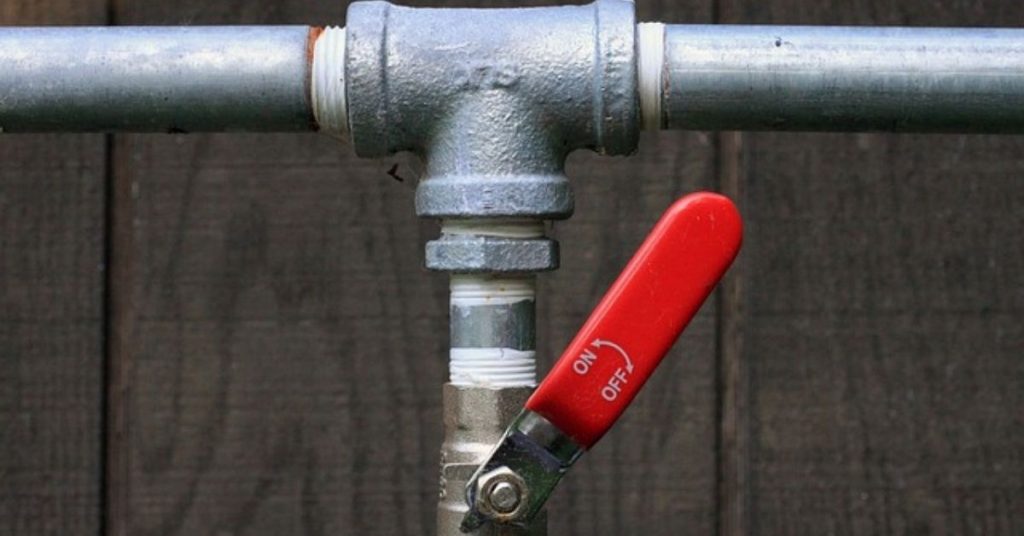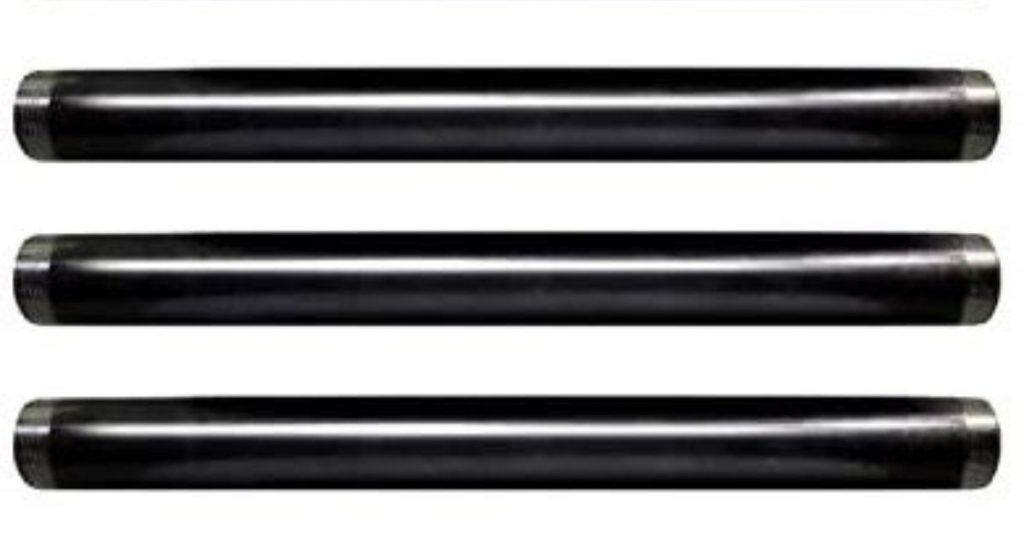
Here’s a comparison table highlighting the key differences between galvanized and black pipes for natural gas:
| Feature | Galvanized Pipes | Black Pipes |
|---|---|---|
| Material | Steel pipes coated with a layer of zinc | Uncoated steel pipes |
| Corrosion Resistance | High resistance to corrosion due to zinc coating | Susceptible to corrosion without protective coating |
| Durability | More durable and longer lifespan | Somewhat less durable due to potential corrosion |
| Appearance | Shiny silver appearance | Matte black appearance |
| Use with Natural Gas | Suitable for natural gas applications | Suitable for natural gas applications |
| Cost | Generally more expensive due to zinc coating | Generally more cost-effective |
| Installation | Requires threading and fitting connections | Requires threading and fitting connections |
| Compatibility | May not be compatible with some modern appliances | Widely compatible with most natural gas systems |
| Maintenance | Low maintenance, thanks to corrosion resistance | May require more frequent inspection and maintenance |
| Environmental Impact | Zinc coating may raise environmental concerns | May be considered more environmentally friendly |
Galvanized pipes are basically steel pipes which have been coated with a layer of zinc. This is done to improve their properties by keeping off moisture and oxygen which causes corrosion.
Natural gas will not corrode steel pipes. For corrosion to occur there needs to be oxygen and water. What happens with old galvanized pipes is that they were poorly galvanized, and a result the zinc coating usually flakes off and end up clogging gas regulators and burner units.
Black pipes (also known as black iron pipe or black malleable iron) are the best pipe for natural gas transportation. Modern galvanized pipes whose coating does not flake off can also be used unless they are restricted by local codes.
Galvanized and black pipes can be mixed in natural gas transportation unless restricted by local plumbing code. The connection creates a dissimilar metal reaction which is nothing to worry about if the connection is in the atmosphere but a significant one if the connection is underground.
What you however need to know is that galvanized pipes are not allowed to carry natural gas underground in many areas. This is because they will eventually corrode and could cause a gas leak. Instead, a factory coated steel pipe must be used.
The same also applies to black iron pipes. Since they are neither coated nor galvanized, they corrode faster than galvanized pipes and should not be used underground. A special steel pipe that is coated with plastic materials must be used in order to keep out the moisture.
The problem with galvanized pipes is that the zinc coat will eventually peel off exposing the steel to moisture and oxygen. When that happens corrosion is inevitable. As the corrosion process accelerates, the pipe continues to weakens and a gas leak will be a matter of when and not if.
Unlike old galvanized pipes which were poorly coated with zinc, modern galvanized pipes are of a better quality. You can therefore use them for natural gas transportation without the zinc flaking off and clogging gas regulators and burner units.
Black Pipe vs. Galvanized Pipe for Natural Gas

Black iron pipes and galvanized pipes are basically the same thing only that galvanized pipes have a zinc coating to protect them from corrosion. Black iron pipes are named as such due to the black iron oxide coating which forms when the pipes react with oxygen.
Due to the extra process (galvanization) used in the manufacture of galvanized pipes; they tend to be more expensive than black iron pipes. Don’t be surprised however to see black iron pipes being pricier than galvanized pipes.
Home improvements stores know black iron pipes are the most preferred pipes for natural gas and they therefore take that advantage to raise the prices.
One of the main differences between black and galvanized pipes is that black iron pipes are manufactured without a seam which is excellent in leak prevention. They are also used in fire sprinkler systems due to their high heat resistance.
Some people (homeowners and professionals) are of the opinion that galvanized pipes should not be used for natural gas transportation. There are those who even go ahead and claim that it is illegal. But is it?
The fear, as I had earlier stated emanates from old and poorly made galvanized pipes flaking off and plugging valves and orifices. That is however old news. Modern galvanized pipes are as good as black pipes when used for transportation of natural gas.
Both the International Residential Code (IRC) and Uniform Plumbing Code (UPC) do not prohibit the use of galvanized pipes for natural gas transportation. Local plumbing codes may however restrict it so check with your local licensed plumber.
Why Black Pipes are Preferred for Natural Gas than Galvanized Pipes

If you check in many homes, you will notice that most natural gas pipes are black pipes and hardly galvanized pipes. Why is this the case though?
Here are the reasons why plumbers (and homeowners) prefer black pipes to galvanized pipes for natural gas transportation:
1. They are Cheap
As I had mentioned earlier it costs more to produce galvanized pipes than black pipes. This is due to the extra zinc-coating process that is used in the production of the galvanized pipes.
The assumption in this case is that the 2 pipes have the same thickness. If the black iron pipe is however thicker than the usual galvanized pipes (as is the case with natural gas pipes), it is going to be more expensive.
2. Most Houses Have Galvanized Water Pipes
Millions of houses in the United States have galvanized water pipes. It therefore makes sense to use a different pipe for transporting gas across the house.
Imagine a scenario where both water and gas pipes in the house all look the same. That would be quite bizarre especially when you need to carry out a plumbing repair.
That is however not to suggest that you can’t use galvanized pipes to transport gas if you already have galvanized water pipes. If you decide to do so, consider painting the galvanized pipes carrying natural gas a yellow color to clearly distinguish them from water pipes.
Note: If you still have galvanized water pipes in your house, my recommendation is to replace them with PEX or copper pipes. I have written a detailed guide on why that is important. Read it here.
Can You Mix Galvanized and Black Pipe for Natural Gas?

Another question that troubles homeowners when installing natural gas pipes is whether it is a good idea to mix black and galvanized pipes or fittings in the connections.
Again, there is no consensus among plumbers on this issue. The Uniform plumbing Code as well does not prohibit it but local plumbing codes may.
The argument here is that connecting a black pipe to a galvanized pipe results into dissimilar metal or galvanic reaction between the black iron and the galvanized coating, resulting in leaks.
Is this true though? Some plumbers will tell you that is nothing other than hogwash.
The truth of the matter however is that the reaction will occur, but will be insignificant when the pipes are installed in the atmosphere (inside the house). If on the other hand the connection is made underground where water and oxygen are in plenty, the reaction will be quite significant.
To avoid issues in the future especially if you ever need to sell your house, I would just avoid it. Unless your local plumbing code prohibits it, the decision is solely yours.
